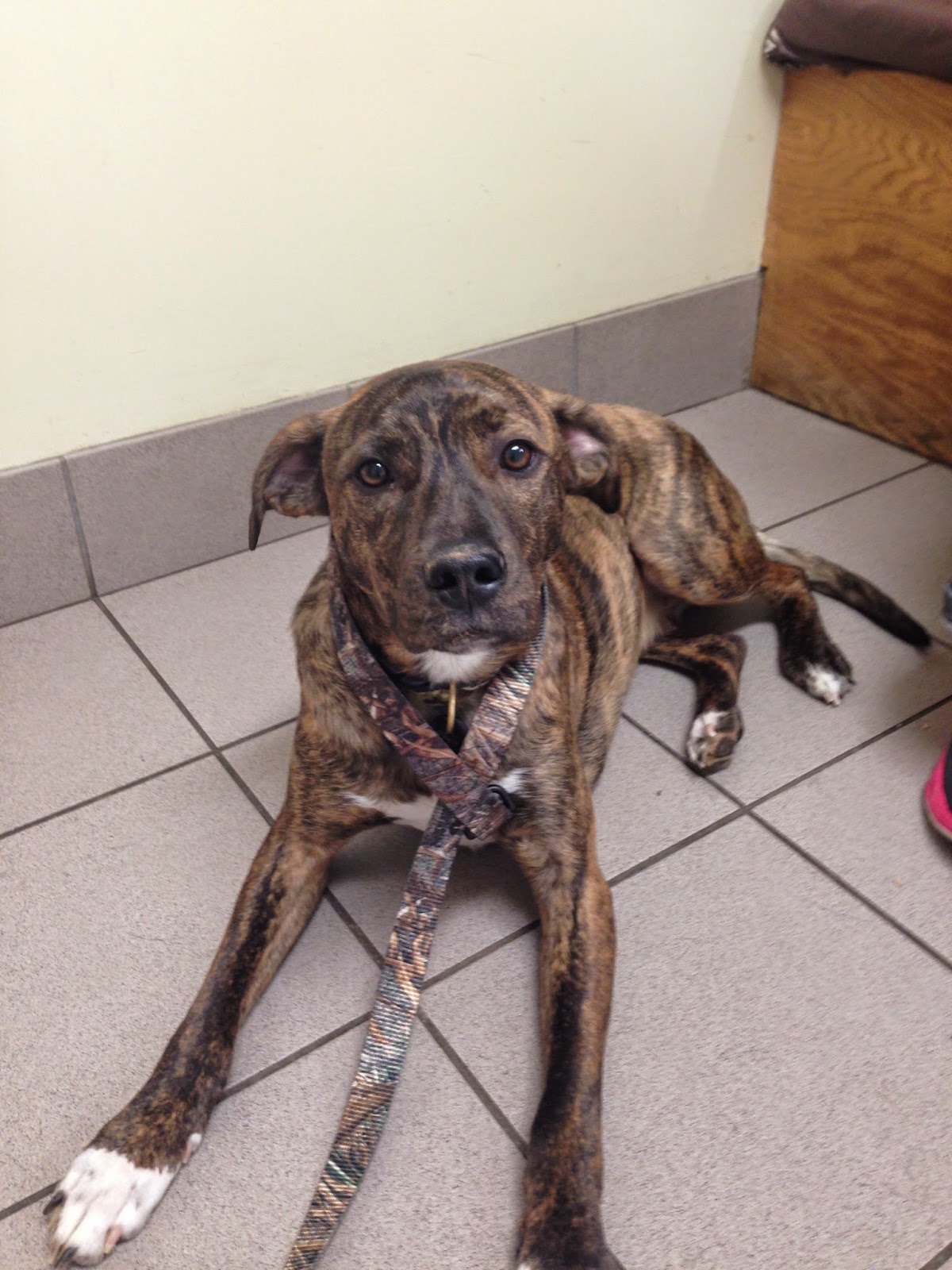 |
| Hank |
"Huh? Sticks you say?"
And there within two minutes was our answer to all of Hanks ills.
I know that most people would just stick their finger in his mouth and try to fix this problem quickly, but it is a Sunday, and I am only here for another hour,, and well, he doesn't like my fingers sticking in his mouth.
"Could you bring him back tomorrow morning so I could look in his mouth without a tongue in the way, or chomping teeth, and allow me to take care of him properly?" I bashfully inquired..
You see there is a fine line between rogue-vet style (my usual preference where I act like a MASH doctor,, all MacGyver and cast caution to the wind) and performing a task with as few variables as possible. Medicine is all about managing worst cases scenarios, being prepared for them, and jumping in.. (see? That's I love that MacGyver stuff!).
Hank's mom was so happy that I had confirmed that she was an astute mom (and not crazy) that she afforded me the liberty of general anesthesia the following day. That calm quiet Hank under anesthesia allowed me to see...
the culprit...
Wedged very tightly and very deeply in the hard palate (OUCH!! can you imagine?) is a stick!
When it got there is hard to tell? I would guess about 2 weeks?
Within a few seconds that bothersome unwanted stick was out of Hanks mouth.
Are you wondering why I was asking for permission to remove this with Hank under anesthesia?
Here were my concerns initially;
- That stick was wedged so deep that I was afraid the hard palate, or teeth, would bleed like crazy. The gums do this to wash away all that yucky bacteria our mouth is full of. The advantage to having an excellent blood supply, and bleeding, is that the gums heal very quickly. The disadvantage is that you need to not let blood go down into the trachea. An animal under general anesthesia has an endotracheal tube that seals off the trachea so nothing can trickle down into the lungs. We can tilt the nose down to drain out the mouth, or suction it out of the mouth.
- That stick was just as likely to go down the hatch (trachea) as it is to go out the way it came in. Swallowing a stick, or very worse yet, inhaling a stick, is very expensive to retrieve and potentially fatal. (Not worth my much beloved MacGyver gusto). And,,
- What if I needed to suture the holes the stick left behind? Or,,
- What if it was so wedged I needed that I needed to break it up to get it out? Worst case,,
- What if there was an open hole (we call it a fistula) between the oral and nasal cavity? (Did you know that you can pierce a hole between the roof of your mouth and your nasal cavity.. it would bleed and hurt and cause massive infection).
- I was worried that there would be other hidden mysterious problems in the mouth. Being under general anesthesia allows us to take a calm, thorough look at them all.
 |
| The stick looks so harmless here. |
But the tongue. Well, it had obviously been licking at a hard sharp object for awhile. Can you see the ulcerated area in the center of the tongue in the center of the photo?
Hank woke up quickly and calmly. He took a few licks of the roof of his mouth and went home with fresh breath and a smile of relief!
Many Thanks to his mom for letting me share his story with you.
Break down of Hanks visit; Exam: $60, Anesthesia: $100, injectable NSAID; $40, Stick retrieval: Free (because I was so excited to get it on video). Happy mom, Stick free pup and relieved vet: Priceless..
If you have a pet question, a story to share, or just want to be a part of a community dedicated to helping pets and their people please join us on Pawbly.com. Pawbly is free and open to anyone who loves pets.
For veterinary care you can find me at Jarrettsville Vet in Jarrettsville Maryland. Or on Twitter @FreePetAdvice.












.JPG)
.JPG)